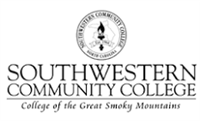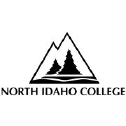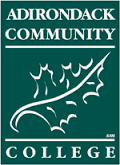What do they do?
Conduct recreation activities with groups in public, private, or volunteer agencies or recreation facilities. Organize and promote activities, such as arts and crafts, sports, games, music, dramatics, social recreation, camping, and hobbies, taking into account the needs and interests of individual members.
Also known as:
Activities Aide, Activities Assistant, Activities Coordinator, Activities Director, Activity Aide, Activity Assistant, Activity Coordinator, Activity Director, Activity Specialist, Camp Director, Recreation Aide, Recreation Assistant, Recreation Coordinator, Recreation Director, Recreation Leader, Recreation Specialist, Recreation Supervisor, Recreation Worker, Recreational Aide, Recreational Leader, Recreational Specialist, Therapeutic Activities Services Worker, Therapeutic Recreation Assistant, Therapeutic Recreation Director, Therapeutic Recreation Leader, Therapeutic Recreation Specialist, Youth Worker
-
1%
Change
Ranks #59 in job growth rate2,090Job Openings
Ranks #10 in net job growth
Looking for colleges that offer a specific major? Use the College Match Tool to find your best-matched schools and discover your estimated Net Price!
- Bachelor's degree (29%)
- Some college, no degree (25%)
- High school diploma equivalent (23%)
- Associate's degree (11%)
- Master's degree (7%)
- Less than high school diploma (4%)
- Doctorate or Professional Degree (1%)
People in this career often have these skills:
- Active Listening - Giving full attention to what other people are saying, taking time to understand the points being made, asking questions as appropriate, and not interrupting at inappropriate times.
- Speaking - Talking to others to convey information effectively.
- Social Perceptiveness - Being aware of others' reactions and understanding why they react as they do.
- Coordination - Adjusting actions in relation to others' actions.
- Service Orientation - Actively looking for ways to help people.
- Monitoring - Monitoring/Assessing performance of yourself, other individuals, or organizations to make improvements or take corrective action.
- Instructing - Teaching others how to do something.
People in this career often know a lot about:
- English Language - Knowledge of the structure and content of the English language including the meaning and spelling of words, rules of composition, and grammar.
- Public Safety and Security - Knowledge of relevant equipment, policies, procedures, and strategies to promote effective local, state, or national security operations for the protection of people, data, property, and institutions.
- Customer and Personal Service - Knowledge of principles and processes for providing customer and personal services. This includes customer needs assessment, meeting quality standards for services, and evaluation of customer satisfaction.
- Education and Training - Knowledge of principles and methods for curriculum and training design, teaching and instruction for individuals and groups, and the measurement of training effects.
- Law and Government - Knowledge of laws, legal codes, court procedures, precedents, government regulations, executive orders, agency rules, and the democratic political process.
People in this career often have talent in:
- Oral Comprehension - The ability to listen to and understand information and ideas presented through spoken words and sentences.
- Oral Expression - The ability to communicate information and ideas in speaking so others will understand.
- Speech Clarity - The ability to speak clearly so others can understand you.
- Problem Sensitivity - The ability to tell when something is wrong or is likely to go wrong. It does not involve solving the problem, only recognizing that there is a problem.
- Near Vision - The ability to see details at close range (within a few feet of the observer).
- Speech Recognition - The ability to identify and understand the speech of another person.
- Written Comprehension - The ability to read and understand information and ideas presented in writing.
People in this career often do these activities:
- Enforce rules or regulations.
- Promote products, services, or programs.
- Organize recreational activities or events.
- Gather information in order to provide services to clients.
- Monitor recreational facility operations.
- Administer first aid.
- Prepare operational reports or records.
- Explain regulations, policies, or procedures.
- Demonstrate activity techniques or equipment use.
- Liaise between departments or other groups to improve function or communication.
- Train service staff.
- Supervise service workers.
- Assign duties or work schedules to employees.
- Arrange facility schedules.
- Document client health or progress.
- Greet customers, patrons, or visitors.
- Visit individuals in their homes to provide support or information.
- Communicate with management or other staff to resolve problems.
- Develop treatment plans for patients or clients.
- Evaluate employee performance.
- Provide counsel, comfort, or encouragement to individuals or families.
- Accompany individuals or groups to activities.
- Develop plans for programs or services.
- Arrange items for use or display.
This page includes data from:

 Occupation statistics: USDOL U.S. Bureau of Labor Statistics Occupational Employment Statistics
Occupation statistics: USDOL U.S. Bureau of Labor Statistics Occupational Employment Statistics









